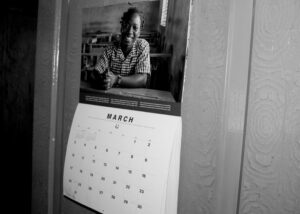Be careful of what the church is ‘shifting’ from
I am writing out of care and concern for the church. There are many practices coming in and I hear more and more people in the body of Christ doing yoga, labyrinths and types of non-biblical meditation and prayer. Some of these practices are being done in our churches or at retreats, and are not questioned. Are these practices in the Bible? Did Jesus teach us to do these things?
As I was reading the Bible, I turned to Deuteronomy, where the Israelites were surrounded by the Canaanites, who had many different worship practices and worshipped many gods. In Deuteronomy 18:9, God told the Israelites, “Do not learn to imitate the detestable ways of the nations there.” Through my reading, I really felt that God did not want me to participate in yoga; it was not for my good.
Those strong in their faith say they can practise these things and stay within their faith. But what about the weaker brothers and sisters who cannot, and participate in something like yoga, which ends up taking them away from their faith? And what are we showing to our neighbours and friends who are searching for meaning if we direct them to mere experiences and not to salvation through Jesus Christ?
The church should be studying the Scriptures, so it is not deceived by false teachers, ideas and philosophies. There are many popular books and authors on our shelves, and it seems like people are more willing to read these books, rather than the Word of God. Are we testing these writings and questioning if they are biblical?
Let us be people set apart, holy, salt and light in the world, instead of trying to be more like the world in this so called “postmodern shift.” What are they shifting from:
- From Bible-believing Christ followers to lukewarm participants who God spits out of his mouth?
- From Bible-believing churches to wishy-washy, seeker-friendly, no-substance churches, where truth is leaking out so we can appeal to, and fit in with, the world?
I humbly pray that the church and its people are not deceived in these last days as new age and emergent thoughts are pushing their way aggressively into the church. We need to encourage each other to be set apart and different from the world, rather than shifting to become postmodern and belonging to this world.
Angela Harder, Calgary
Number of ‘ethnic’ Mennonite congregations praised
Re: “Glue and rough drafts” editorial, Nov. 11, page 2.
I am very happy that there are more and more "ethnic" Mennonite congregations in Canada. I myself immigrated to Canada 40 years ago and after many difficult experiences a word of caution I feel is necessary. Ethnics pay taxes like everyone else, but they are quite often denied "equal opportunity" in very subtle ways.
Yes, it is nice to worship God in familiar ways, but multiculturalism in my experience can become a "smoke screen," and visible minorities even now suffer at the hands of the "visible majority," especially in the area of employment.
In the editorial there is an error. The name of the Sri Lankan Tamil theologian is D.T. Niles. D.T. stands for Daniel Thambyrajah. D.T. Niles, in my opinion, was a prophet. This comes through clearly in his opening address to the World Council of Churches assembly in 1968.
Bimal Thambyah, Montreal. Bimal Thambyah is a member of the Mennonite Fellowship of Montreal.
God’s faithfulness, brain bleeds span the generations
Re: “My faithful God and bleeding brain,” Nov. 11, 2013, page 34.
I read with great interest Brandi Friesen Thorpe’s wonderfully written story, as I also suffered a sudden, unexplained subarachnoid hemorrhage (brain bleed) three years ago. I also was taken to a Hamilton, Ont., hospital, where I received excellent care, felt the loving support of my family and experienced God’s amazing grace.
I am more than double Brandi’s age—I was 53 at the time of my bleed—and also marvel that the Lord healed me. It could have been so different. Praise God that he is faithful to his children!
Laurene Nickel, Niagara-on-the-Lake, Ont.
Homosexuality not necessarily ‘a God-given condition’
Re: “Unlearning the Bible to welcome homosexuals,” Jan. 6, page 15.
I appreciate and share Gerhard Neufeld’s four stated assumptions: God is; God creates; God is love; and, Christ is, through his life, death and teaching, God’s revelation as to who God is and how we ought to live.”
While I would also include Jesus’ resurrection in this list, I agree with the thrust of his assumptions. I also affirm that hearing God’s voice sometimes involves unlearning past teaching.
As Mennonite Church Canada seeks God’s direction on matters of human sexuality, however, I hope that any unlearning will not involve forgetting or ignoring key realities in Scripture. Historically, for example, we have been able to confess the paradoxes that God is both loving and holy, and we are both created in the image of God and deeply marred by sin.
Given our share in creation’s “bondage to decay” as “we wait eagerly for . . . the redemption of our bodies” (Romans 8:21-23), we cannot assume that every human inclination is of God. Sin pervades our human condition, including our sexuality. Even if there were overwhelming evidence that homosexuality is genetically determined, we could not assume that it is a God-given condition. Both homosexuals and heterosexuals share in both the goodness and fallenness of creation.
Our church is called to reflect the heart of Jesus Christ to gays and lesbians. All of us—regardless of sexual orientation—need both the affirmation and challenge of the gospel. God not only chooses, welcomes and blesses, but also warns, corrects and disciplines.
I am convinced that God is honest about sin in the Bible not to condemn us, but to protect us and set us free. Even if it no longer makes sense to many in our postmodern age, I trust that Scripture’s prohibition of homosexual sexual relationships reflects the same holy love of God. We do no one any favours by unlearning that.
Brent Kipfer, Wellesley, Ont.
Re: “Peace church should oppose Québec charter” letter, Nov. 25, 2013, page 12.
Anicka Fast and John Clarke wrote that, like many of us, they do not like discrimination against other religions.
Québec’s charter of secularism is not, however, a threat to freedom of religion. In fact, it is more likely to defend all citizens, whether religious or not. The charter should reduce the chances of a citizen facing a religiously biased official or policy in daily living.
In the discussion of the charter, those opposed tend to conflate the issue of intolerance with state neutrality. The state’s role is to protect all religions, all races and all sexual lifestyles against harassment. Just because there has been an increase of racist incidents does not mean government policies are faulty. It means that the government is not enforcing the law.
Nor does a private daycare’s difficulty in finding clients indicate that the proposed charter is defective. As Fast and Clarke note, it’s the people’s fearful perceptions that keep clients away.
Governments that seek to keep religious ideas out of the governmental sphere offer a better chance that we will enjoy a peaceful society. Both the history of modern societies, as well as conditions in many parts of the world today, indicate that it is the ambitions of the religions to control public policy that represent the greatest danger.
Symbols speak even more vividly than do words. Representatives of the state wearing a turban, a hijab or a cross bring a confusing message to their jobs where the client expects neutrality. Jocelyn Barry, a psychotherapist, wonders what message a symbolic cross may send to her patients: “Would they reveal their abortions, their homosexuality, their infidelities? Could they trust me with their stories?”
The question is even more pressing if the professional serving the vulnerable works for the state, a sovereign power with a monopoly on lawful violence. In the U.S., Catholic bishops are lobbying to have Catholic hospitals that serve a secular clientele exempted from the law that all insurance plans cover prescription contraception. Employees who are not Catholic would have to live according to somebody else’s religion. It is because of a church’s desire for such power that the state needs to protect all citizens.
The principles of separation of church and state were hammered out in the 17th century to prevent the powerful state churches—Catholics, Lutherans, Calvinists and Anglicans—from fighting amongst each other, as well as to protect small groups such as the Anabaptists, many of whom willingly accepted help from secular states.
John Klassen, Langley, B.C. John Klassen is professor emeritus in Trinity Western University’s Department of History.
Lessons to be learned from Nelson Mandela
Did Nelson Mandela emerge from Robben Island a conscientious objector to war? Maybe the label is beside the point, the point being that he advocated for reconciliation and nonviolent resistance, and with these methods and plenty of goodwill and negotiation he and many others managed to defeat apartheid. This they did while much of the world believed that such a black-and-white issue would be decided only by firepower.
Other major conflicts in our world are waiting for leaders with Mandela's principles to enter centre stage and rally people of goodwill to find negotiated solutions. The Israel/Palestine conflict has produced many such persons from both nations committed to working towards a peaceful solution. Unlike South Africa, in the case of Israel/Palestine the oppressive power is being bolstered by western governments.
If it is true that Israel is the largest recipient of U.S. military aid—and the Canadian government is on the same team—we should be reminded that taxes in support of the Department of Defence work against the kind of peaceful and just settlement we would like to see, not only in Israel/Palestine but in other conflict zones.
How much more useful would be a Department of Peace? This year, place yourself firmly with peacebuilders like Mandela, and direct the military portion of your income tax away from war preparation. Go to http://www.consciencecanada.ca and select Option B on the Peace Tax Return 2013 you find there. You won't be sent to a forced-labour prison like Mandela, but you will be making bricks to build democracy, humanity, justice and peace in Ottawa and around the world.
Mary Groh, Scarborough, Ont.
–Posted Jan. 29, 2014







Leave a Reply
You must be logged in to post a comment.